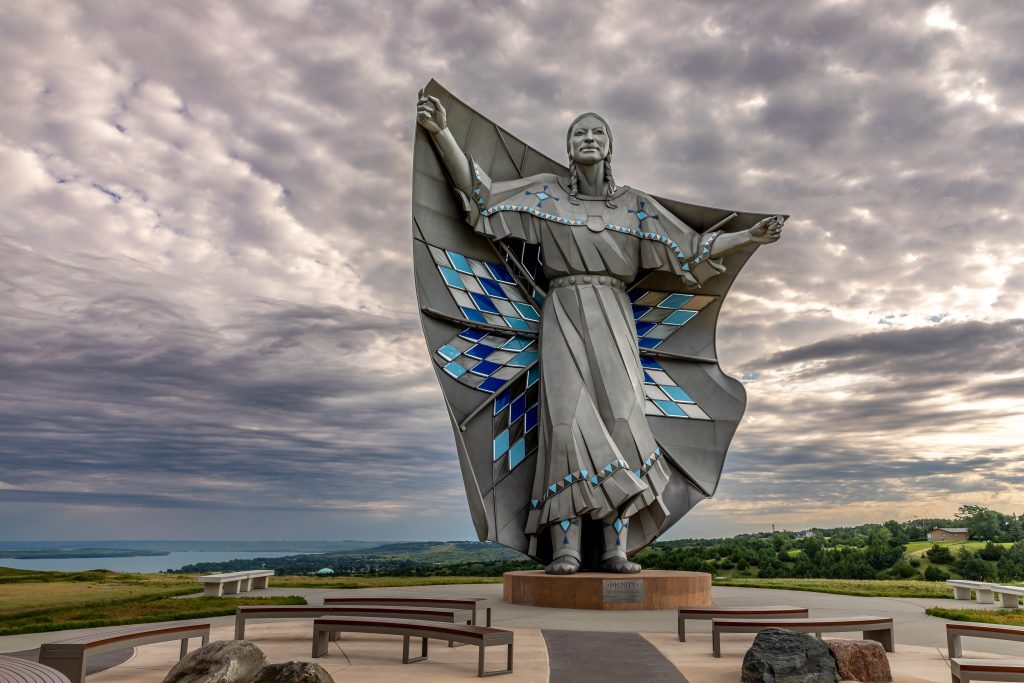South Dakota’s nine tribal nations are working to control their own stories, languages, and data.
According to the National Congress of American Indians, this movement could change how businesses, healthcare, and government work across the state. As tribes claim ownership of their information, all South Dakotans could see changes—like better rural healthcare, new business partnerships, and more efficient government services.
What It Means
Tribal data sovereignty affects everyone. NCAI reports that when tribes control their economic data, they can find business partners and create jobs in nearby towns.
“Data is central to unlocking who we are as (Indigenous) people. It is central to our healing. We must take a stand for our freedom and our sovereignty,” said Dr. Sammy Matsaw, Jr., at the April 2024 Indigenous Data Sovereignty Summit, as reported by the U.S. Indigenous Data Sovereignty Network.
Better data sharing between tribal and state agencies can also reduce duplication and save taxpayer money. The Network for Public Health Law says that strong data governance and trust are key to effective partnerships, and states should honor tribal data sovereignty in all data-sharing agreements.
The Federal Reserve Bank of Minneapolis has found that tribal-state data partnerships can improve data quality and community trust, benefiting Native and non-Native residents.
Standing Rock’s Landmark Decision
In 2022, the Standing Rock Sioux Tribe confronted the Lakota Language Consortium, a nonprofit that had copyrighted Lakota language materials.
“No matter how it was collected, where it was collected when it was collected, our language belongs to us. Our stories belong to us. Our songs belong to us,” Ray Taken Alive, a Lakota language teacher, told the tribal council, according to NBC News. The tribe then banned the consortium and passed a resolution claiming ownership of language materials, setting a precedent for other tribes.
How Data Affects Healthcare
Tribal data sovereignty could improve healthcare for everyone in rural South Dakota. When tribes control their health data, they can better plan and expand care for both Native and non-Native patients, according to U.S. IDSN.
For example, the Oglala Sioux Tribe’s Department of Public Safety receives up to 166,000 calls a year. Still, according to data from Sen. Mike Rounds’ office and U.S. IDSN, it has only 33 patrol officers. Better data could help tribes document these needs and obtain more resources.
The Network for Public Health Law emphasizes that tribal nations are sovereign jurisdictions with the right to govern their public health data. States should honor tribal data sovereignty in all data-sharing agreements.
Emerging Technologies and Data Risks
Innovative technology like artificial intelligence and cloud computing is changing how tribal data is used. These tools can help preserve language and culture but also bring risks. Experts discussed these issues at a panel, “AI, Data Sovereignty, and Tribal Issues,” held on March 5 at the University of Oklahoma’s OU Tulsa campus.
“Do not assume the training models will get your tribe’s information right. Your tribe may lose control over its data,” Dr. Matthew Beattie, a faculty member at the OU Polytechnic Institute, told the panel. “It’s important to remember that you can use AI while still maintaining control over your data.”
Warren Queton, a Kiowa Tribe legislator, added at the same panel, “Data governance has become the next frontier. Tribes need to take action to protect our data sovereignty.”
Organizations like Tribal Ready are helping tribes build their own secure data infrastructure and train tribal data managers so that data is stored and managed within the tribe’s own systems, not by outside parties.
Principles and Best Practices
According to NCAI and the Global Indigenous Data Alliance, Indigenous data sovereignty means tribes have the right to control how their data is collected, stored, and used. The CARE Principles—Collective Benefit, Authority to Control, Responsibility, and Ethics—are now a global standard for ethical data use.
They emphasize that data should benefit Indigenous communities, respect their authority, and be managed responsibly and ethically. The Center for Tribal Digital Sovereignty, launched by NCAI and the American Indian Policy Institute, provides resources and guidance for tribes on digital and data sovereignty.
Recent Progress
In November, following the April 2024 Indigenous Data Sovereignty Summit in Tucson, Arizona, U.S. IDSN released a brief with five strategies for tribal data control. These include setting core values, a framework for action, a U.S. IDGov strategy, a data standard, and reaffirming current approaches.
The Federal Reserve Bank of Minneapolis notes that more tribes are adopting their own codes and policies for data governance and that tribal digital sovereignty is now recognized as an act of self-determination.
The Bottom Line
As South Dakota’s tribes take steps to manage their own data, the effects are likely to be felt across the state. From healthcare and business to government services, data ownership, and sharing decisions are shaping new ways for communities to work together. How these changes play out will help define the next chapter for both tribal nations and South Dakota.
Todd Epp is the publisher and editor of Northern Plains News, LLC, an independent news organization.


